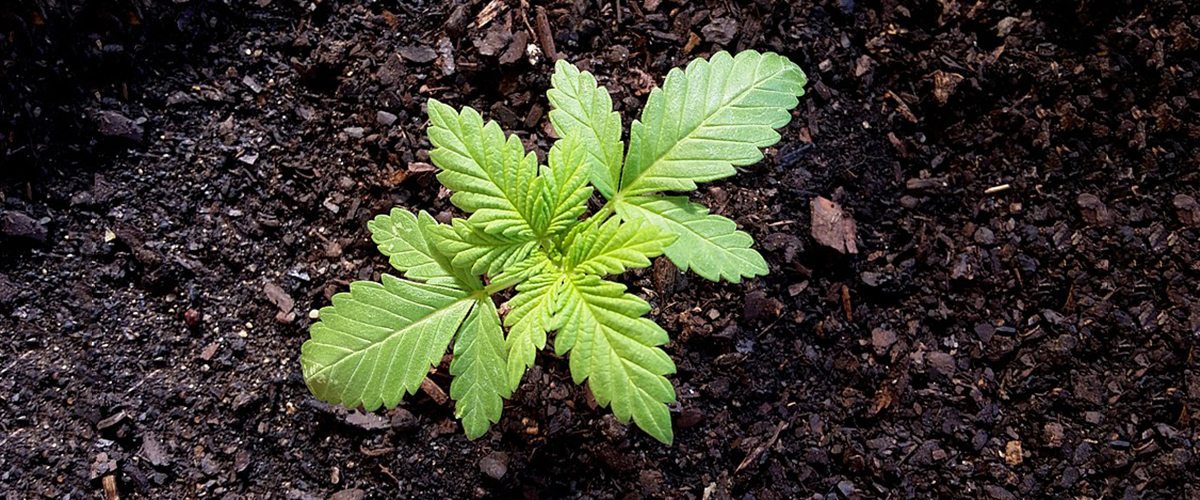[vc_row][vc_column][vc_column_text]
The Drug Enforcement Administration has said it’s hoping to fuel cannabis research in the U.S. by opening up the availability of growing licenses, but the costs needed to meet federal requirements are keeping many potential growers away.
At the same time that the Drug Enforcement Administration recently announced its refusal to reschedule cannabis, the agency said it would encourage domestic cannabis research by allowing more growers to apply for research-grade cannabis production licenses.
“To facilitate research involving marijuana and its chemical constituents, DEA is adopting a new policy that is designed to increase the number of entities registered under the Controlled Substances Act (CSA) to grow (manufacture) marijuana to supply legitimate researchers in the United States,” read the DEA’s policy statement.
For more than 40 years, the University of Mississippi has been the sole recipient of a government license to grow marijuana for federally sanctioned research. The DEA was hoping that by increasing the number of growers and subsequently reducing supply delays, medical marijuana researchers would be encouraged to perform federally sanctioned studies. So far, however, the DEA has had no takers.
Health news site STAT reportedly reached out to nearly a dozen agricultural schools, several of which have industrial hemp programs, to inquire whether they would be interested in conducting marijuana research for the government. All of the schools, which included Cornell University, the University of Kentucky, Virginia Tech, Michigan State University, the University of Vermont, Western Kentucky University, the University of California, Davis, the University of Nebraska, Lincoln, Colorado State University, Oregon State University and Purdue University, responded that they were uninterested or had no plans.
Despite the logistical difficulties facing researchers, the studies that have been conducted indicate that cannabis possesses several therapeutic benefits. Research has shown cannabis to have anti-cancer effects, to have the ability to slow the progression of Alzheimer’s and Parkinson’s diseases, to reduce seizures related to epilepsy and other disorders, to reduce spasms associated with multiple sclerosis, to manage pain and nausea, and to have anti-inflammatory and neuroprotective effects.[/vc_column_text][/vc_column][/vc_row][vc_row][vc_column][vc_single_image image=”17365″ img_size=”1200×250″ onclick=”custom_link” link=”https://www.medicalmarijuanainc.com/education/”][/vc_column][/vc_row][vc_row][vc_column][vc_column_text]Regulatory hurdles have hindered the volume of human clinical research and handicapped the collection of data on cannabis’ effectiveness, dosage, safety, and delivery systems. Clinical trial findings are what are necessary for a substance to be recognized by the federal government.
“There is growing public interest in exploring the possibility that marijuana or its chemical constituents may be used as potential treatments for certain medical conditions,” the policy’s statement reads. “The Federal Food, Drug and Cosmetic Act requires that before a new drug is allowed to enter the U.S. market, it must be demonstrated through adequate and well-controlled clinical trials to be both safe and effective for its intended uses.”
For universities to register with the DEA for federally sanctioned research, they must first show they are willing to comply with several requirements, including having security measures in place to protect the marijuana. Setting up for an operation could cost prospective growers millions of dollars in start-up costs.
Independent growers are open to applying, but may find themselves at a disadvantage, as in the agency’s memo, it noted that it would consider whether applicants have “engaged in illegal activity involving controlled substances… regardless of whether such activity is permissible under state law.” In other words, if growers had previously been in violation of the CSA, the agency would more likely disqualify the applicant.
Despite the disadvantage, the CEO of medical marijuana growing company Cresco Labs, Charlie Bachtell, has said he is considering applying for a DEA license.
“The future of this industry definitely starts with research,” Bachtell told STAT. “The opportunity to help progress the acceptance, the elevation, and the professionalism of the medical cannabis industry really starts with research.”
While the DEA’s recent actions do remove a significant hurdle for cannabis researchers, it appears that the remaining regulations and significant start-up costs could still hinder the progress of noteworthy clinical research.[/vc_column_text][/vc_column][/vc_row]






